Putin’s brutal imperialism
Putin signalled early during his rule his fury that Moscow’s former empire had slipped the leash. After he took over in 2000, one of his first acts was to appoint a new ambassador in Budapest.
He chose Valerii Musatov, a Soviet party apparatchik who supervised Hungary’s loyalty to Moscow after the crushing of the 1956 uprising: as if post-war Germany chose as ambassador to France a senior Nazi official from the occupation.
Yet I was still sceptical Putin would invade Ukraine. Partly because that would be a radical departure from his previous strategy with insubordinate neighbours – grab bits of their territory, turn them into failed states but stop short of invasion. It also seemed inconceivable that Putin wasn’t aware any attempt to subjugate Ukraine would turn into a quagmire.
So what have we learnt since 24 February, the day the world changed forever? Putin’s invasion is even more of a disaster than predicted. He seems to have believed conquering all of Ukraine would be as easy as his 2014 seizure of Crimea, where his forces were greeted by the ethnic-Russian majority and where the Ukrainians gave up largely without a fight. Instead, Putin faces defiance, with a highly-motivated military, armed so far with 17,000 Western anti-tank and 900 anti-aircraft missiles, who continue to humiliate his war machine. Russia has lost 164 tanks and 31 military aircraft, and 5,000 of its troops have been killed – more than the US lost in a decade in Iraq. The fact that two weeks into his campaign Russian tanks trying to enter Kiev continue to be decimated suggests deep problems. There are big question-marks over Russian morale, with reports of soldiers being shocked to be fighting Ukrainians, seen by most Russians as family. Several Russian commanders have been killed trying to lead reluctant troops. Tellingly, Putin is recruiting Chechen and Syrian fighters.
Putin enters treacherous territory if the failures persist. And, having said his aim is to ‘de-Nazify’ and to disarm Ukraine, it’s hard to see how he climbs down from installing a puppet regime. But, even if he flattens Ukraine’s cities and eliminates president Zelensky to achieve that, the country won’t be pacified. Resistance, buoyed by Western military and moral support, would be interminable and brutal.
Putin’s ostensible gripe with Ukraine is that it is heading towards Nato membership. This is nonsense – it became a Nato partner in 2020, but, as long as its territory remains contested, is never going to become a member-state. Putin’s real grievance is that Ukraine rejects being part of Russia’s sphere of influence, instead wanting to join the democratic West.
The timing of Putin’s attack was almost certainly prompted by his perception of a weak and divided West. His military buildup started not long after the Kabul debacle and the formation of a leftist German government. Following the Black Lives Matter riots and the successes of the transgender lobby, Putin’s view seems to have hardened that the West is terminally decadent and no longer has self-belief.
He no doubt expected the West would react to his assault in its usual vacillating way – as it did after outrage about his murder of exiles in Britain and after Russia became post-war Europe’s only country to annex part of a neighbouring state. This time, however, he underestimated the global outrage. There are rarely such clearcut cases of international good and evil. And Ukraine’s brave and impressive David versus Goliath resistance has solidified international support.
The West has responded strongly to Putin, despite the leader of the free world’s shambolic performance. Biden astonishingly announced that he expected Western divisions if Putin invaded, revealed internal US disagreements by vetoing Secretary of State Blinken’s green light to Poland’s transfer of Mig-29 fighter jets to Ukraine and, in his public statements, has repeatedly confused Ukraine with other countries (Iran, Russia).
Still, the West has quickly turned Russia into a pariah, squeezed its oligarchs and isolated and degraded its economy, in tandem with a massive commercial boycott. Russians no longer have access to Western credit cards, Netflix, Instagram or Facebook, while McDonald’s, Starbucks, fashion chains Zara and Mango, Airbnb, Ikea and Apple are just some of the 250 Western brands which are pulling out. Russia will be further shunned in everything from international sport to the Eurovision Song Contest. If Putin proves himself even more of a monster by using chemical or biological weapons, the pressure will be on for a complete trade embargo (despite the pain that would inflict on European countries dependent on Russian gas), a blanket ban on Russians travelling to the West and the expulsion of Russian ambassadors.
Russia’s international relations are a smoking ruin: the EU and German leftists are suddenly anti-Russia hawks. Putin’s cunning plan to end Nato enlargement by making the benefits of membership obvious mean most Swedes and Finns now want to become members. His only significant friend, China, is publicly ambivalent about the war. At the United Nations, he can’t expect support from more than a handful of other rogue regimes.
The West must ensure Putin’s failure while avoiding World War III. Were his aggression to succeed, he could be tempted to test Nato’s preparedness to defend other parts of Moscow’s former empire. And China must be convinced that the international cost of an attack on Taiwan would be too high.
The Ukraine war is Putin’s. There’s little sign that those around him support it. And if the conflict drags on with continuing casualties and an economy in freefall, chances of him facing a Ceausescu moment will grow. Serious popular unrest would increase the likelihood of that.
The West’s security agencies must obviously do anything they can to hasten the end of Putin’s dangerous despotism. And it would inspire more confidence if the head of MI6, for example, was clearly focused on that task rather than tweeting about LGBT+ History Month and telling us what his preferred pronouns are.
Got something to add? Join the discussion and comment below.
Get 10 issues for just $10
Subscribe to The Spectator Australia today for the next 10 magazine issues, plus full online access, for just $10.
Mark Higgie is The Spectator Australia’s Europe correspondent and is on Twitter at @markhiggie1
You might disagree with half of it, but you’ll enjoy reading all of it. Try your first month for free, then just $2 a week for the remainder of your first year.

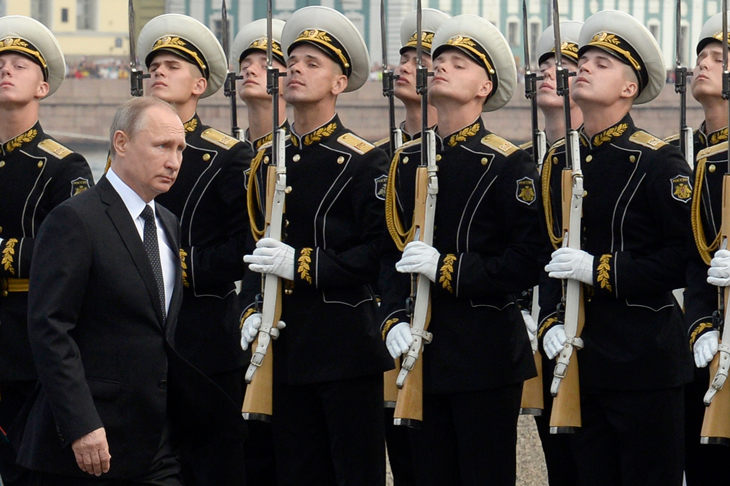
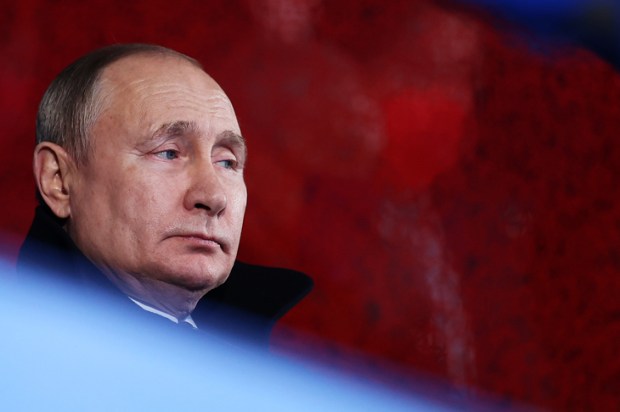
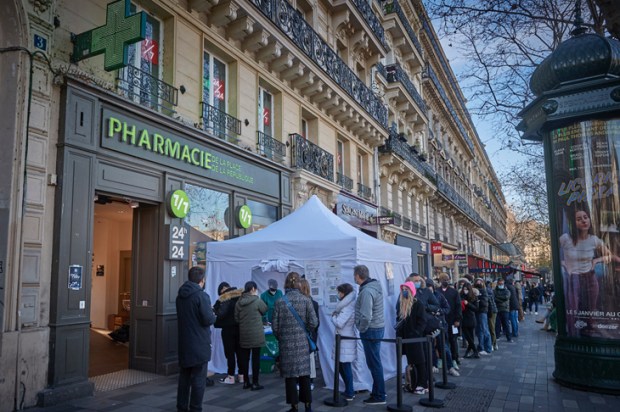
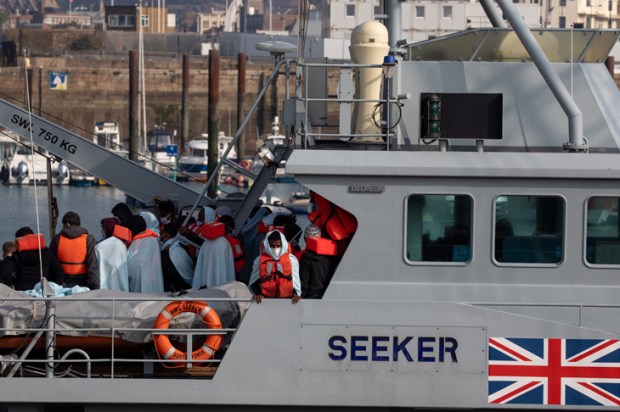
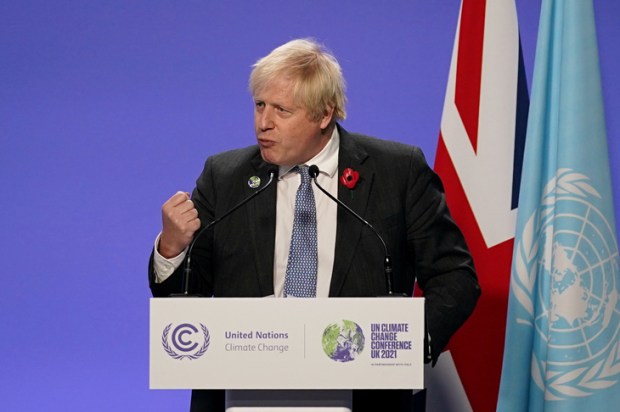
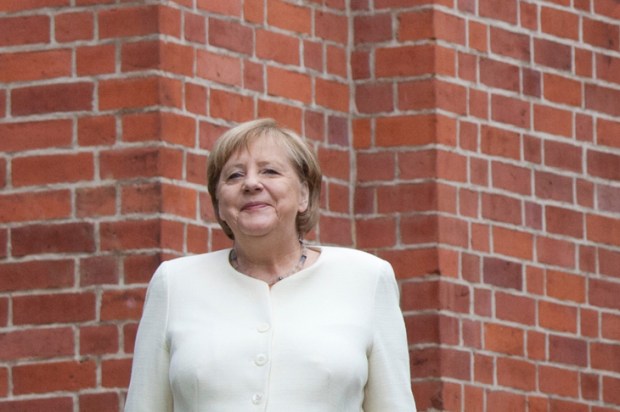







Comments
Don't miss out
Join the conversation with other Spectator Australia readers. Subscribe to leave a comment.
SUBSCRIBEAlready a subscriber? Log in